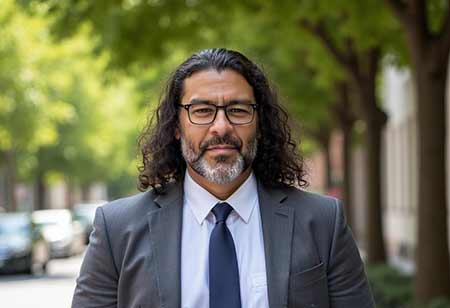THANK YOU FOR SUBSCRIBING
By Frank Bischoff, Director, Customer Innovation, Food and Beverage, Arts Centre Melbourne
Developing Good Leadership Skills
By Takashi Nakamura, VP Food Safety, Fresh Del Monte
Pre-Harvest Assessment: Elevating our field practices for...
By Enrique Leon, AI Enterprise Architect, American Sugar Refining Inc
Enhanced Precision Agriculture using Cloud Based AI
By Ruohan Liu, Senior Director, Global Operations, Agriculture Supply Innovation, PepsiCo
How Cloud Computing Impacts Precision Agriculture Technology

Keys to Building a Resilient, Sustainable Agribusiness
Pablo Sanhueza Castro, Corporate Manager Of Quality, Safety, Innovation And Operational Excellence, Empresas Iansa

 Pablo Sanhueza Castro, Corporate Manager Of Quality, Safety, Innovation And Operational Excellence, Empresas Iansa
Pablo Sanhueza Castro, Corporate Manager Of Quality, Safety, Innovation And Operational Excellence, Empresas IansaThe food industry is experiencing a moment of profound transformation. According to a McKinsey study, we are entering a new era marked by four major structural trends. These are the emergence of a multipolar world with growing influence from Asia, the urgency of sustainable resource and energy management, significant demographic changes such as population ageing and urbanization, and the accelerated advance of new technological platforms such as artificial intelligence and bioengineering. These factors are forcing companies to review not only how they produce, but also for whom and for what purpose.
From my experience of more than 20 years in national and multinational food and mass consumption companies, I have proven that this duality becomes possible when there is a clear management structure, a culture focused on continuous improvement and a systemic vision that connects each decision with the value expected by the customer or consumer.
In this context, having operational excellence systems based on methodologies such as Lean and Kaizen™ have proven to be key tools for capturing efficiency opportunities in a disciplined way. The focus is structured on pillars such as daily routines, the leadership agenda and innovation projects. These allow for tangible benefits in productivity and service and contribute to a reduction of claims and accidents.
At the same time, work in agile design thinking cells in collaboration with start-ups, academia and research centres has been key to promoting innovation with a focus on two main objectives: to enhance the efficiency of production assets and to develop more natural and functional food solutions. In an agro-industrial business, sustainability is not an accessory concept; it is a structural condition.
That’s why it’s critical to use tools like the Value Stream Assessment to identify and eliminate waste along the value chain. This approach makes it possible to give rise to specific initiatives, such as the recovery of plant waste through bioconversion, the development of food fibres from co-products, or innovations such as Barrier Balls, which reuse agricultural plastics to reduce evaporation in irrigation dams.
“In an agro-industrial business, sustainability is a structural condition. That's why it's critical to identify and eliminate waste along the value chain, while treating quality and safety as non-negotiable”
These efforts are always based on a non-negotiable basis of quality and safety. In this area, the implementation of robust systems based on HACCP and certifications such as FSSC 22000, ISO 22000, HALAL, Kosher, Organic or Baby Food, together with environmental and energy standards such as ISO 14001 or ISO 50001, allows us to offer full traceability and comply with the highest standards. In the agricultural field, the progress towards sustainability certifications such as FSA is a clear sign of the commitment to responsible and traceable practices at source.
This comprehensive approach enables organizations to respond with agility to new demands. Today, technologies such as artificial intelligence, digital twins and precision fermentation are transforming the way we optimize processes, reduce emissions or develop healthier products. Clean labels, natural ingredients and new sources of protein, such as insects, microproteins or cell cultures, are no longer niches. They are the new normal.
Meeting these demands requires more than an investment in technology. A profound cultural transformation is needed, one that promotes continuous improvement, open collaboration and deliberate innovation. It is not enough to have ideas. It is more necessary to systematize, prioritize and execute them in contexts that combine uncertainty and urgency. In my current experience within Empresas Iansa, I have found that this approach is key to growing with purpose, staying competitive and building a truly resilient agribusiness.
Read Also















